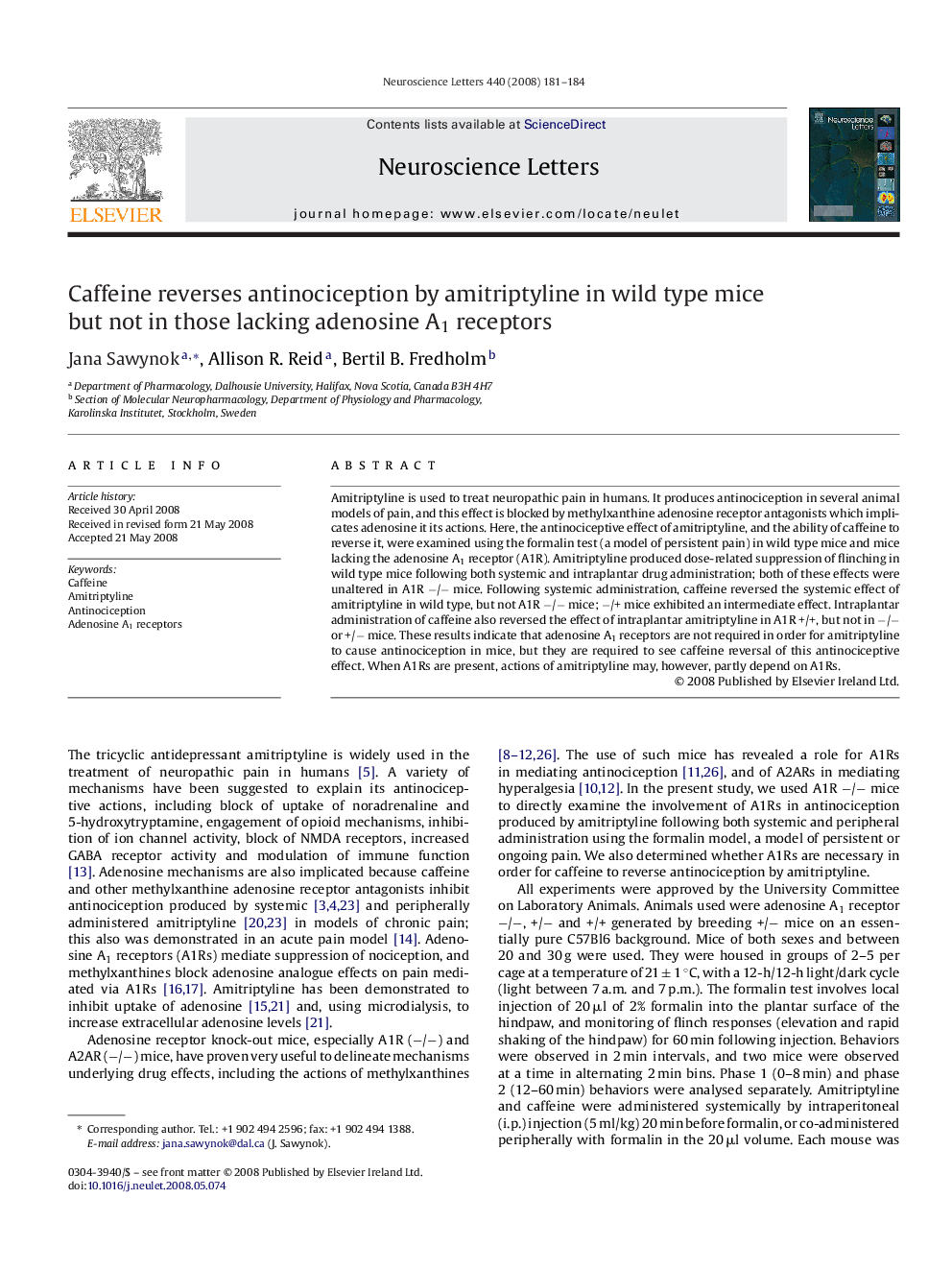| Article ID | Journal | Published Year | Pages | File Type |
|---|---|---|---|---|
| 4348173 | Neuroscience Letters | 2008 | 4 Pages |
Amitriptyline is used to treat neuropathic pain in humans. It produces antinociception in several animal models of pain, and this effect is blocked by methylxanthine adenosine receptor antagonists which implicates adenosine it its actions. Here, the antinociceptive effect of amitriptyline, and the ability of caffeine to reverse it, were examined using the formalin test (a model of persistent pain) in wild type mice and mice lacking the adenosine A1 receptor (A1R). Amitriptyline produced dose-related suppression of flinching in wild type mice following both systemic and intraplantar drug administration; both of these effects were unaltered in A1R −/− mice. Following systemic administration, caffeine reversed the systemic effect of amitriptyline in wild type, but not A1R −/− mice; −/+ mice exhibited an intermediate effect. Intraplantar administration of caffeine also reversed the effect of intraplantar amitriptyline in A1R +/+, but not in −/− or +/− mice. These results indicate that adenosine A1 receptors are not required in order for amitriptyline to cause antinociception in mice, but they are required to see caffeine reversal of this antinociceptive effect. When A1Rs are present, actions of amitriptyline may, however, partly depend on A1Rs.
